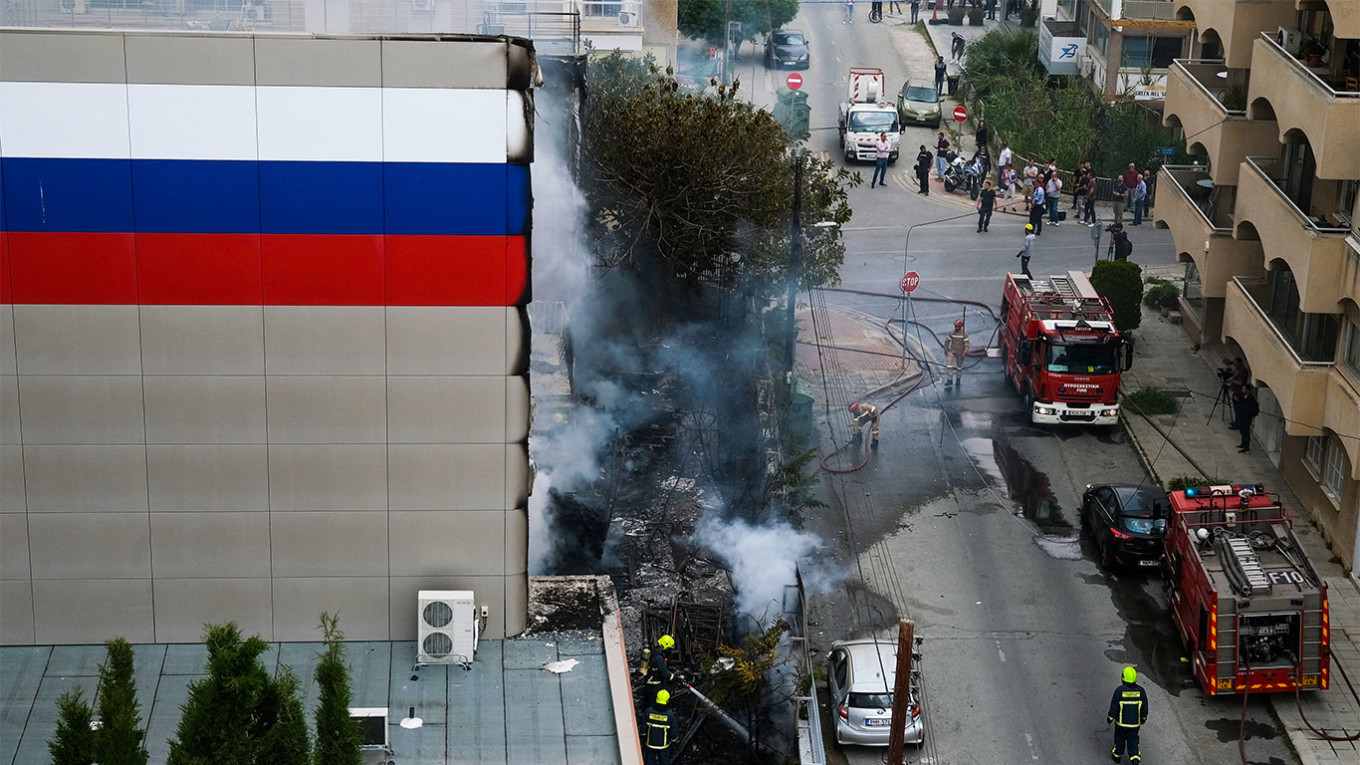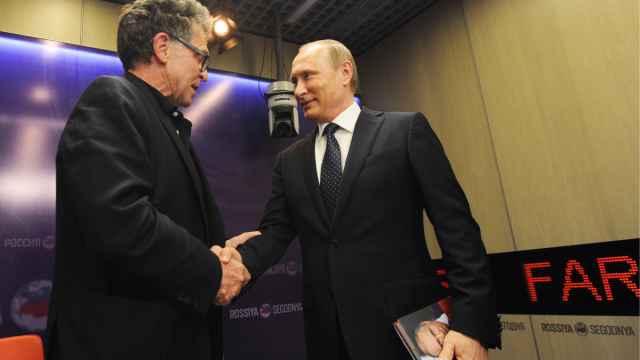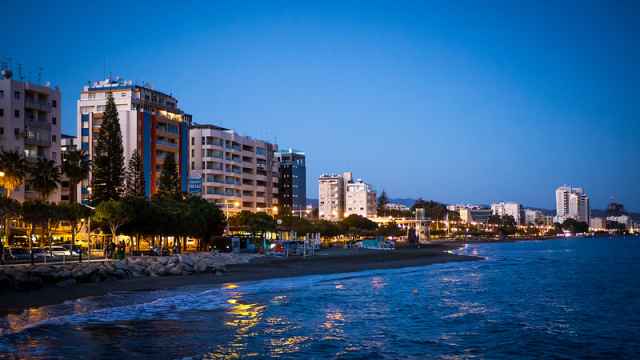A large fire broke out at the Russian Center of Science and Culture in Cyprus' capital Nicosia after a Molotov cocktail was thrown into the building, the state-run TASS news agency reported Wednesday, citing the institution’s head.
"We heard two explosions at around 1:30 p.m. We couldn’t connect them with anything at first, but then it turned out that our building had caught fire…According to eyewitnesses, something was likely thrown into the building,” another state-run news agency, RIA Novosti, quoted the center's head Alina Radchenko as saying.
The explosives appeared to target the part of the building where its offices are located, Radchenko said.
Eyewitness videos published online show a tall plume of smoke rising from the building.
The cause of the blaze is still under investigation.
"The entire building has suffered extensive damage," Fire Service spokesman Andreas Kettis tweeted. "The causes of the fire will be investigated in cooperation with the police and, if necessary, other state services."
The Russian diplomatic mission to Cyprus later said the fire had been extinguished and reported no casualties.
But the emergency services are continuing to search for any potential victims who may still be trapped inside the building, according to local sources cited by the Cyprus Times.
In comments to Russian state television, Radchenko later said that the attack could have been a response to the “active pro-Russian work” conducted by the cultural center.
“This is the answer to our firm position and the fact that more and more Cypriots are supporting Russia,” she said.
Radchenko claimed without evidence that the local “pro-Ukrainian diaspora” or Western embassies in Cyprus “that are supporting all public figures ready to carry out work against Russia” could be behind the attack.
The center, part of which is wrapped in large bands of red, white and blue paint, the colors of the Russian flag, is operated by the country's embassy.
It was built in 1978 and is located in a separate part of the city from the embassy itself.
There are more than 18,000 Russians and more than 4,600 Ukrainians living on the Mediterranean island, according to official Cypriot government statistics last year.
Since Russia's invasion of Ukraine in early 2022, European Union member Cyprus has also received around 10,000 Ukrainian refugees.
AFP contributed reporting.
A Message from The Moscow Times:
Dear readers,
We are facing unprecedented challenges. Russia's Prosecutor General's Office has designated The Moscow Times as an "undesirable" organization, criminalizing our work and putting our staff at risk of prosecution. This follows our earlier unjust labeling as a "foreign agent."
These actions are direct attempts to silence independent journalism in Russia. The authorities claim our work "discredits the decisions of the Russian leadership." We see things differently: we strive to provide accurate, unbiased reporting on Russia.
We, the journalists of The Moscow Times, refuse to be silenced. But to continue our work, we need your help.
Your support, no matter how small, makes a world of difference. If you can, please support us monthly starting from just $2. It's quick to set up, and every contribution makes a significant impact.
By supporting The Moscow Times, you're defending open, independent journalism in the face of repression. Thank you for standing with us.
Remind me later.






